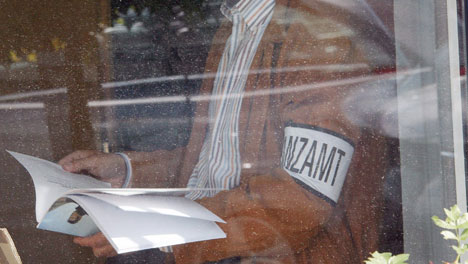The daily Frankfurter Allgemeine Zeitung said the unnamed whistleblower had supplied details of five accounts worth some €1 million ($1.4 million) in tax as proof and demanded €2.5 million for the full list.
The paper quoted a tax official as confirming that the five accounts had been checked and said the finance ministry was considering the proposed deal.
“It’s now too late for these five to own up,” the official told the daily.
The German Finance Ministry declined to comment on the report while a Swiss Finance Ministry spokesman, Roland Meier, said Bern was waiting to see what Berlin expected.
If confirmed, the affair deals a new blew to Switzerland’s jealously-guarded banking secrecy which is under siege from several quarters. On Wednesday Swiss Finance Minister Hans-Rudolf Merz said Switzerland and France had resolved a spat over data stolen from the Geneva branch of banking giant HSBC.
He said that among other things France had agreed to send copies of the stolen data, concerning some 3,000 French citizens, to Switzerland, and promised not to transmit it to other countries.
Last year the former German finance minister, Peer Steinbrück, called on the Organisation for Economic Cooperation and Development (OECD) to put Switzerland on its black list of tax havens.
Switzerland was placed on the “grey list” of uncooperative countries but agreed to follow OECD rules on tax matters and end a distinction it made between tax evasion and fraud. It has since signed a separate agreements with a dozen countries on exchange of tax information, though not all have been ratified.
In a government-brokered settlement for charges of tax fraud in the United States, Switzerland’s banking flagship UBS last year agreed to hand over details of about 4,450 clients and US taxpayers to US authorities.
But last week a Swiss court upheld an appeal by one taxpayer against the transfer, saying the deal could not take precedence over the existing Swiss-US dual taxation agreement.




 Please whitelist us to continue reading.
Please whitelist us to continue reading.
Member comments